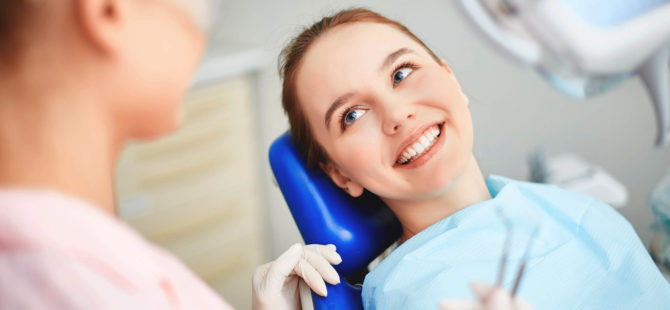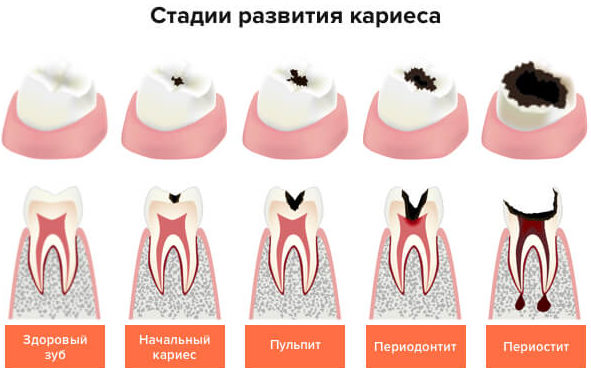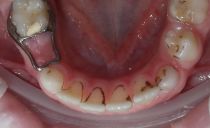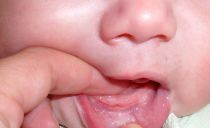Is it possible to treat teeth and use anesthesia for breastfeeding
Lactation is no less difficult for women than pregnancy. At this time, you can’t eat many familiar foods, you need to adjust your daily routine for the benefit of the baby, and all this is complemented by almost round-the-clock care of the newborn. But most of all newly minted mothers are worried that during breastfeeding, you can encounter a wide variety of dental diseases, many of which cannot be treated with traditional methods to avoid the health effects of babies.
Content
Causes of frequent dental problems while breastfeeding
During breastfeeding (HB), a woman is affected by a huge number of factors provoking the development of dental diseases. To the occurrence of toothache in a nursing mother, both standard and specific conditions can lead. The first include chronic diseases, improper and inadequate hygiene, metabolic failures, infections. And to the second:
- Pregnancy experienced in the recent past, during which many substances necessary for healthy teeth were involved in the formation of the fetus.
- The ongoing outflow of calcium and vitamins from the mother's body during the production of breast milk.
- Hormonal changes during pregnancy, childbirth and the production of breast milk.
- Decreased immunity activity.
- Permanent employment of the child and the postponement of preventive examinations at the dentist.
Many women notice that during lactation, tooth problems begin or worsen. But because of the widespread belief that treatment with a dentist with anesthesia is harmful for a baby, some young mothers do not go for treatment even with the most advanced diseases, accompanied by regular toothaches.
Can I treat my teeth while breastfeeding
Breastfeeding is a contraindication for many dental procedures, but is not an obstacle to the use of alternative treatments.
| Procedure name | Can I do with lactation |
|---|---|
| Diagnosis of diseases using x-rays | X-ray studies are allowed with lactation. But the procedure should be carried out in well-equipped X-ray rooms, which have digital equipment and a minimal level of exposure. |
| Removal of a tooth | Tooth extraction is safe for hepatitis B, but only without anesthesia and with the use of acceptable anesthetics (lidocaine). Do not remove teeth if a woman has acute infections of the ENT organs or suffers from purulent inflammation of the gums. |
| Other surgical procedures | The doctor assesses the likely danger of the disease to the health and life of the mother. If surgery and anesthesia cannot be avoided, breastfeeding may be temporarily interrupted or discontinued. |
| Implantation | When breastfeeding, you can not install implants, since after this procedure antibiotics are prescribed that adversely affect breast milk. |
| Filling | Filling is necessary in the treatment of caries. With severe discomfort, a nursing mother can be treated and filled with teeth under anesthesia, but only using an approved pain medication. |
| Braces Installation | Installation of braces is not recommended during breastfeeding, as the additional load on the teeth during this period can lead to negative consequences. |
| Whitening | Such a procedure as bleaching is not vital and harmful to the baby, as the components of bleaching preparations penetrate into milk. |
If a lactating woman has symptoms of a dental disease, she should seek treatment from her dentist. After the diagnosis is established, the doctor will make a decision - which medical manipulations are appropriate in a given period, and which can be done later. For example, the doctor will remove the wisdom tooth during breastfeeding, and will plan teeth whitening for the period after lactation.
With a dental disease that threatens the life and health of a nursing mother, the doctor will conduct a treatment incompatible with breastfeeding. If the dentist has reported such a situation, you need to contact a pediatrician who will tell you how to organize a baby’s nutrition.
With a temporary interruption of breastfeeding, regular pumping of milk is necessary to prolong its production. The baby at this time is transferred to feeding with artificial mixtures.
Interrupting breastfeeding without consulting a specialist is not recommended, as improper actions can harm the baby and lead to a complete cessation of milk production.
What is the danger of lack of dental treatment for hepatitis B?
If there is a need for dental treatment for hepatitis B, consult a dentist. With the progression of tooth decay, infection of the soft tissues of the oral cavity with infection, purulent inflammation, toxic substances will begin to be produced in the body of a nursing mother. Both toxins and pathogenic microorganisms themselves can pass into breast milk. A child who eats this milk is at risk.
The lack of treatment for dental diseases is dangerous for the woman herself. Without treatment, caries provokes pulpitis, inflammation of the root of the tooth and gums, and leads to the accumulation of infection pathogens in plaque. Such processes increase the risk of developing extensive purulent inflammation in the oral cavity, the spread of the inflammatory process to the ENT organs, and the entry of pathogens into the internal organs.
The pain that accompanies many dental pathologies forces you to take painkillers and can be very stressful for a young mother. This condition negatively affects the nervous and hormonal regulation of milk production. As a result, a crisis of lactation may occur, and the baby will begin to lose weight or completely lose its natural feeding.
Principles of dental treatment during breastfeeding
When planning a treatment with a dentist during the period of hepatitis B, it is worth remembering some rules:
- Before visiting the dentist, you need to feed the baby in order to minimize the time when it can not be applied to the chest.
- A woman is obliged to inform the dentist about breastfeeding so that he carries out only those procedures that are harmless to the lactation process and the baby’s health.
How long you can start the first feeding after visiting dentistry, depends on the procedures. If anesthesia was used in dental treatment, breastfeeding can only be continued after the anesthetic has been removed from the body. Usually this process lasts several hours, but it is better to clarify this nuance with a doctor.
If you have to skip the time-based feeding, you need to express the milk so that the breast does not become inflamed, and the lactation process continues.
Nursing mother's dental treatment at home
At home, full dentistry is impossible neither during lactation, nor at any other time.At home, only a few procedures can be performed that help relieve toothache, reduce swelling of the gums and accelerate recovery. All home therapeutic measures should be discussed with the attending physician, especially if the patient is a nursing mother.
With severe toothache, you have to take analgesics, most of which are contraindicated for use in lactation. In general, Ibuprofen and Paracetamol are allowed, but only after an individual consultation with the therapist about the dosage of the drugs and the possible presence of an intolerance reaction to their components in the baby. Analgin and Citramon are harmful to the health of the baby, so they can not be taken during lactation.
Nursing mother can be assigned to rinse the mouth. It is forbidden to choose drugs or herbs for the preparation of decoctions on their own. Their active ingredients enter the milk in minimal amounts, but can also harm the baby.
What to do to avoid the development of dental diseases
During lactation, a limited number of treatment procedures are allowed. In addition, any mother wants to spend as little time as possible on trips to dentistry, since almost all attention during this period is paid to the baby. The best way out of the situation is the prevention of dental diseases:
- Compliance with hygiene rules, thorough brushing and timely brush changes.
- Nutrition that meets the needs of both women and children.
- Diet adjustment under the supervision of a nutritionist with a deficiency of any nutrition components, in severe cases - taking vitamin complexes prescribed by the doctor.
- Regular visits to the dentistry clinic: it is better to spend time on a preventive examination at the dentist than then visit him repeatedly to cure or remove the tooth.
In order not to provoke a lactation crisis caused by excitement when visiting a dentist, a woman should be aware of the importance of treatment and suppress fear. Many young mothers have to remove wisdom teeth and fill in carious cavities during breastfeeding. These procedures should be treated without excessive excitement, but with sufficient seriousness, since delaying treatment can turn into big problems in the future.
Do not be afraid that during the period of hepatitis B all unpleasant dental procedures will be performed without pain relief - doctors use anesthetics, but only those that are harmless to the lactation process and the health of the baby.
The famous pediatrician Komarovsky and dentist Soloviev tell about the importance and principles of dental treatment during pregnancy and lactation in the following video:






